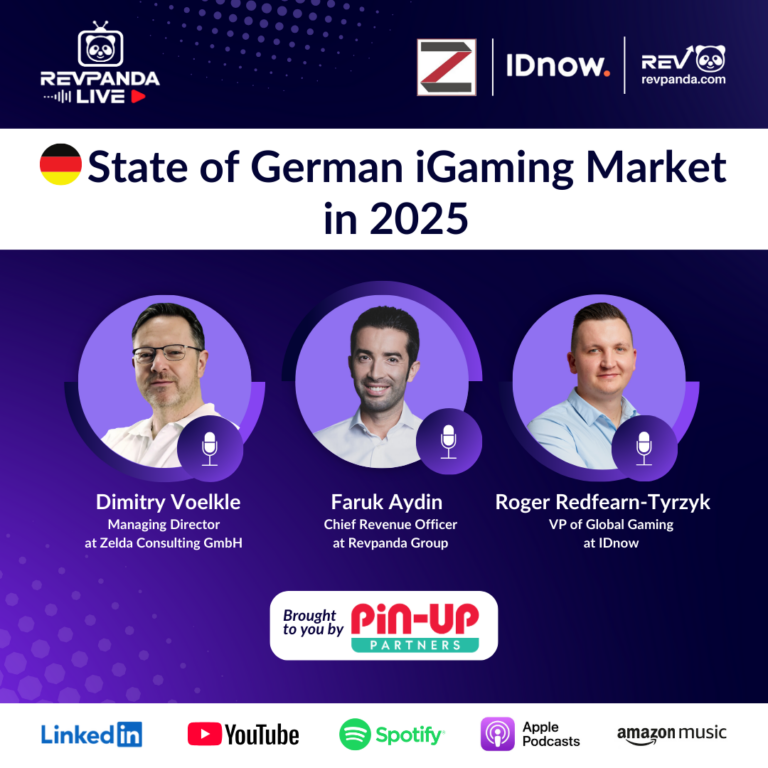The Brazilian Finance Ministry has set a new deadline for operators to apply for a license. Will you be ready for January 1?
Discussions regarding Brazil’s online gambling market have been ongoing since 2018, when the National Congress tasked the federal government with regulating the industry.
Back then, it was hoped that new regulations would create a safer and more transparent gambling environment, which would increase government revenue through taxation, protect players from fraud and promote responsible gambling practices. Many believed that such changes would also attract both local and international operators and transform Brazil into a major hub for the gambling industry in Latin America.
There have been numerous twists and turns since then, but in July 2024, Brazil’s regulatory process for online gambling, which included 10 detailed ordinances, was finally completed.
The new rules impose strict requirements on both local and international operators, including financial thresholds and rigorous background checks to ensure transparency and prevent money laundering. A mandatory fee structure for license applications was also established, ensuring that only financially stable and well-regulated companies could enter the market.
Read more about the other regulatory requirements, along with the multitude of challenges and opportunities facing gambling operators in Brazil in an interview with Ronaldo Kos, LATAM Gaming here.
Initially, companies had until August 2024 to apply for a license; those that were successful would be able to operate under the new bet.br domain from January 1, 2025; other gambling domains, including .com, would be blocked. It was announced that other licensing application windows would be announced in due time.
However, in mid-September, Brazil’s Finance Ministry announced that operators that had not applied for a license by midnight on September 30 would have to cease operations from October 1 until they had applied and received their permits. Any that continued to operate would be subject to having their websites blocked and fines of up to R$2 billion (US$354 million).
The two-week notice period was certainly a surprise for the industry. As gambling operators rush to get their applications submitted in time, it’s important they do things correctly and ensure they have the right technological stack in place, especially to comply with identity verification requirements.
Ronaldo Kos, LATAM Gaming at IDnow
All bets are off. Why the rush?
Ensuring all operators meet strict legal and ethical standards will strengthen the integrity of the sector and so is an admirable, yet sudden, step for the Ministry to take. Many, however, are left wondering the same thing: Why the change of dates? The cynical may think it is just to gather additional revenue as soon as possible, but according to Finance Minister, Fernando Haddad, this has nothing to do with it.
Many, including Fernando, believe Brazil is suffering from a ‘gambling epidemic,’ citing the nearly 25 million people who placed sports bets in the first seven months of 2024, averaging around 3.5 million new users per month.
Read more about the dangers of using grey market platforms in our blog, ‘Before Brazilian regulation: The dangers of gambling without KYC.’
Gambling has become a serious social problem and one the Finance Minister has vowed to crack down on.
It is for this reason, among many others, that underscore the importance, and appetite, of the Brazilian sports betting market becoming regulated as soon as possible. Further checks, linked to spending limits, are likely to be mandated in the coming months to protect the most vulnerable groups, including the elderly and those receiving state benefits.
How many Brazilian operators have applied for a license?
So far, 132 companies have submitted their applications to continue operations, and that number is constantly increasing as the deadline approaches.
All active operators who submit an application before the October 1 deadline will be allowed to continue operating, providing they are granted a license. Companies that applied before August 20 have been assured that they will receive a decision from the government regarding the status of their license application in time to be able to start operating from January 1. Those that applied after this date can continue to operate as usual until the end of the year but may not be able to continue ‘business as usual’ once regulated betting begins from January 1. Those that operate without a license run the risk of a fine and being banned for up to 10 years.
After the October 1 deadline, the government will process the pool of applicants and issue licenses. The government has until November 17 to give companies an answer and as of right now there has been no mention of a limit on the number of licenses being given. Once an operator has been approved, they then have 15 days to pay the fee of 30 million reais ($5.45 million) in order to continue doing business.
Playing by the rules: What are the guidelines going forward?
Once the official ordinances go into effect at the beginning of January, all authorized gambling operators must use the bet.br domain in order to be distinguished from unauthorized platforms, including .com.
Credit cards will no longer be a valid form of payment and instead only debit cards or Pix (the Brazilian instant payment system ecosystem) will be accepted.
Operators will also be required to perform a robust identification process during onboarding. It is therefore of utmost importance to choose an identity verification provider that can meet the very specific challenges of the Brazil market:
- Be able to process a wide range of different Brazilian identity documents.
- Perform KYC and gather customer information, such as full name, date of birth and valid identification documents.
- Verify citizens’ CPF numbers and ensure that they do not appear on any of the various government-mandated restriction lists.
- Facial biometric verification is now mandatory for registration, with regular facial re-verifications a requirement.
Operators must also monitor transactions for suspicious activity to prevent money laundering, fraud and underage gambling. The goal of these KYC measures is to enhance consumer protection, promote responsible gambling and ensure compliance with Brazil’s broader efforts to create a transparent and secure gambling environment. Non-compliance with these requirements can result in severe penalties, including the loss of the operator’s license.
Operators will therefore need to ensure their platform can onboard customers quickly, safely and securely. A robust KYC process guarantees that customers are who they say they are, while preventing fraud and protecting the business and the customer at the same time.
Ronaldo Kos, LATAM Gaming at IDnow
To discover the onboarding journeys of some of the world’s most popular gambling markets, read ‘Exploring the customer onboarding differences in global gambling markets.’
Play on with IDnow.
At IDnow, we offer advanced Know Your Customer (KYC) services to assist with existing and upcoming regulations, in Brazil and beyond.
Our automated and secure identity verification solutions enable operators to quickly and accurately verify player identities, ensuring compliance with Brazil’s stringent KYC requirements.
We support real-time document verification, biometric checks and fraud detection, which helps operators prevent money laundering and underage gambling while maintaining a seamless user experience.
Read more about our Brazil-ready identity verification services.
By

Kristen Walter
Jr. Content Marketing Manager
Connect with Kristen on LinkedIn




